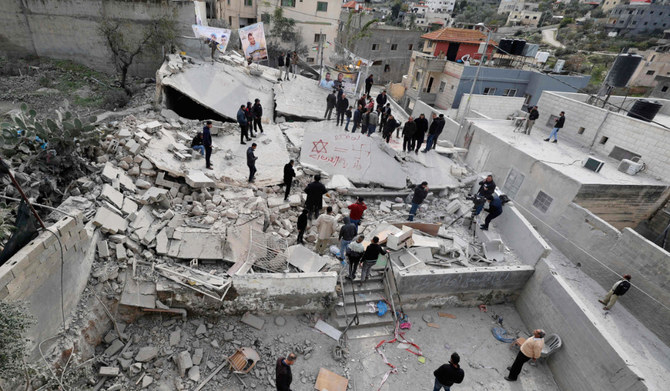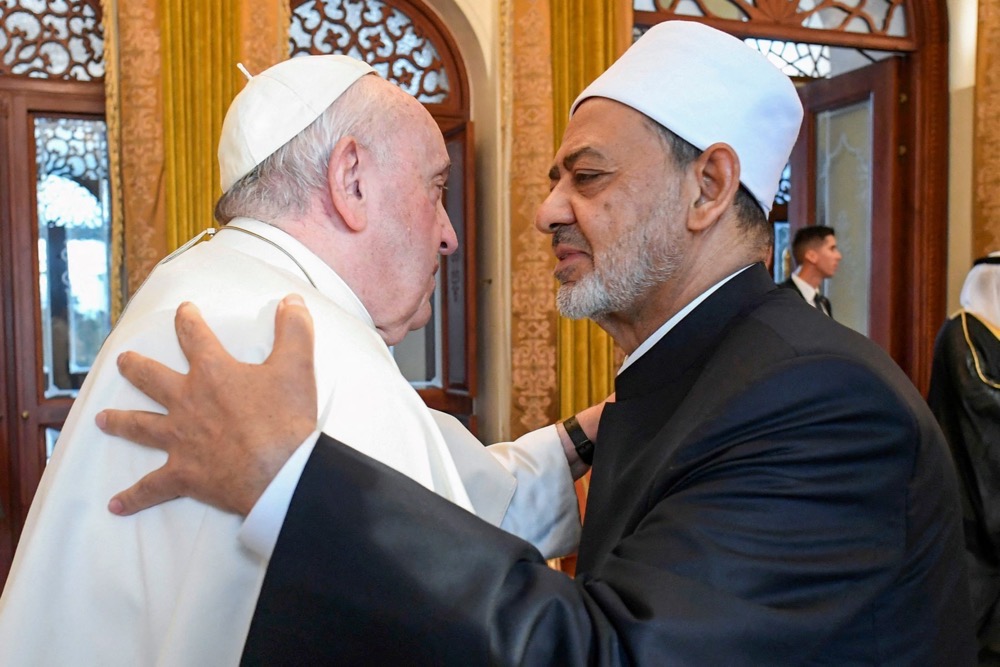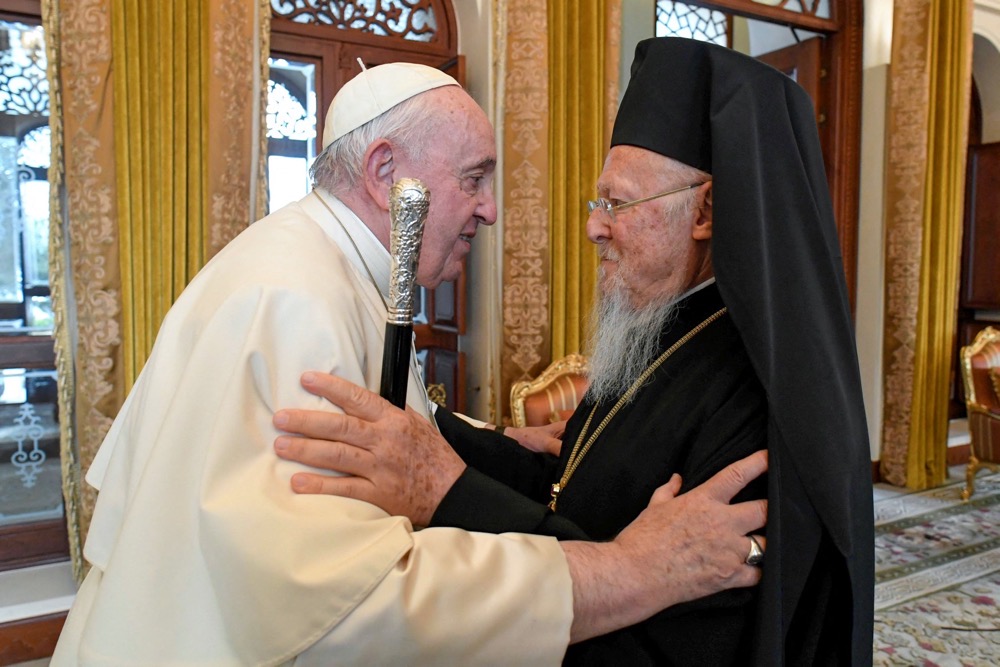RAMALLAH: Palestinians received the new year with two deaths and the demolition of two houses in the village of Kafr Dan near Jenin, in the northern West Bank, according to official Palestinian sources.
The Palestinian Ministry of Health confirmed the death of two young men, Mohammed Hoshieh and Fouad Abed.
Hoshieh, 22, was shot in the chest, and Abed, 25, was shot in the abdomen and thigh during the Israeli invasion of Kafr Dan in the governate of Jenin.
The two killings in Jenin are the first deaths reported by the Palestinian Ministry of Health in 2023.
Three other wounded citizens are in critical condition.
The incident occurred during an Israeli operation in the village of Kafr Dan to demolish the houses of two Palestinian men who were involved in killing an Israeli officer near the Jalame crossing in mid-September 2022. The two Palestinian men were also killed in the exchange of fire four months ago.
Last year was the deadliest in the Palestinian-Israeli conflict in the occupied West Bank and Israel since the early 2000s, with over 170 Palestinians killed in the West Bank, the Palestinian Ministry of Health reported.
Palestinian Prime Minister Mohammed Shtayyeh condemned Monday’s killing of the two young Palestinians, which he said reflects the mentality of the perpetrators, who continue their crimes without fear of being held accountable for them.
He declared that he holds the Israeli occupation authorities fully responsible for any repercussions that may result from their daily killings and incursions.
He called for immediate measures to protect Palestinians, appealing to the countries that voted in favor of requesting a legal advisory opinion from the International Court of Justice on the right of the Palestinian people to self-determination.
Israeli forces arrested 18 citizens from the West Bank cities of Hebron, Bethlehem, Nablus, Ramallah and Salfit at dawn on Monday.
The Palestinian Authority’s Ministry of Foreign Affairs described the act as organized state terrorism.
The ministry highlighted continuous Israeli attempts to escalate the conflict in order to make a political solution impossible and impose a military approach in dealing with the Palestinian people.
The ministry confirmed that it was following up on the occupation’s crimes with specialized international courts, including the International Criminal Court.
Maj. Gen. Akaram Rajoub, governor of Jenin, told Arab News that the Israeli army plans to continue targeting the Jenin governorate in 2023 through violence and the demolition of homes.
Rajoub described the situation in Jenin as very tense, with great sadness and anger prevailing among the citizens.
The city of Jenin in the West Bank has been the most targeted by Israeli forces for over a year, Rajoub told Arab News.
Coinciding with Israeli politician Itamar Ben Gvir’s plan to tour the Al-Aqsa Mosque complex this week, Israeli security authorities summoned the head of the Supreme Islamic Authority and the preacher of Al-Aqsa Mosque, Sheikh Ekrima Sabri, for interrogation on Monday.
Palestine Liberation Organization Executive Committee Secretary-General Hussein Al-Sheikh described the threat posed by Bin-Gvir’s visit to the site as security minister as the first step of this government and its occupation policies. He added that the “shameless” move requires a Palestinian, Arab and international response commensurate with it.
Hamas has informed Egyptian mediators that it would not stand idle over Ben-Gvir’s provocative and aggressive action and that such a step would escalate tensions.
Palestinians, meanwhile, are deeply affected by the message of Palestinian prisoner Karim Younis, who will be released on Jan. 5 after serving 40 years in Israeli prisons.
In his letter, Younis bids farewell to the cell he lived in for most of his imprisonment and his comrades who will remain behind and describes his uncertainties regarding the transition to freedom after 40 years of detention.
Younis was born in the village of Ara and was arrested on Jan. 6, 1983.
Khaled Al-Azraq, from Bethlehem, who spent five years with Younis, from 2008-2013, told Arab News that Younis’ touching message expresses his convictions in the struggle of the Palestinian people and his sadness at being left in prison for decades.
Al-Azraq described his friend Younis as a modest and educated man who enjoys good relations with all his colleagues from the various Palestinian organizations and who is respected by all of them.
Younis lost his parents while he was in prison.
He is one of 25 Palestinian prisoners Israel has detained since before the signing of the Oslo Accords in 1993.
Israel had refused for decades to release those prisoners despite several exchange deals and mass releases.




































